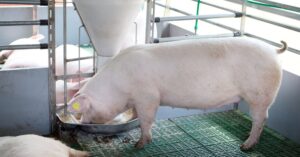Subscribe to Updates
Get the latest agriculture news and updates directly to your inbox.
Author: staff
To understand the new smart monitors and other pro devices of tech health, we should look to Silicon Valley and the quantified movement of the latest generation. Apple’s Watch records exercise, tracks our moves throughout the day, assesses the amount of time we are stood up and reminds us to get up and move around if we have been sat for too long – let’s not forget Tim Cook’s “sitting is the new factor” line. Routinely evaluating your risk factors for various medical conditions, screening for cancer and other diseases, and assessing your lifestyle habits helps you stay healthy. It’s…
Jungfrau A. Bietschhorn This region is a magnificent area with high mountain ranges, glaciers and is actually the most glaciated part of the European Alps. Visiting this area can be done relatively easy by car and if you want to go up, by train up to 3,400 metres above sea level, the highest train ride in Europe, the Jungfrau Railway is very impressive (and expensive!). The area is on the UNESCO World Heritage list because of its unique and wide range of flora and fauna and geological importance regarding the creating of the High Alps.
To understand the new smart monitors and other pro devices of tech health, we should look to Silicon Valley and the quantified movement of the latest generation. Apple’s Watch records exercise, tracks our moves throughout the day, assesses the amount of time we are stood up and reminds us to get up and move around if we have been sat for too long – let’s not forget Tim Cook’s “sitting is the new factor” line. Routinely evaluating your risk factors for various medical conditions, screening for cancer and other diseases, and assessing your lifestyle habits helps you stay healthy. It’s…
To understand the new smart monitors and other pro devices of tech health, we should look to Silicon Valley and the quantified movement of the latest generation. Apple’s Watch records exercise, tracks our moves throughout the day, assesses the amount of time we are stood up and reminds us to get up and move around if we have been sat for too long – let’s not forget Tim Cook’s “sitting is the new factor” line. Routinely evaluating your risk factors for various medical conditions, screening for cancer and other diseases, and assessing your lifestyle habits helps you stay healthy. It’s…
To understand the new smart monitors and other pro devices of tech health, we should look to Silicon Valley and the quantified movement of the latest generation. Apple’s Watch records exercise, tracks our moves throughout the day, assesses the amount of time we are stood up and reminds us to get up and move around if we have been sat for too long – let’s not forget Tim Cook’s “sitting is the new factor” line. Routinely evaluating your risk factors for various medical conditions, screening for cancer and other diseases, and assessing your lifestyle habits helps you stay healthy. It’s…
To understand the new smart monitors and other pro devices of tech health, we should look to Silicon Valley and the quantified movement of the latest generation. Apple’s Watch records exercise, tracks our moves throughout the day, assesses the amount of time we are stood up and reminds us to get up and move around if we have been sat for too long – let’s not forget Tim Cook’s “sitting is the new factor” line. Routinely evaluating your risk factors for various medical conditions, screening for cancer and other diseases, and assessing your lifestyle habits helps you stay healthy. It’s…
To understand the new smart monitors and other pro devices of tech health, we should look to Silicon Valley and the quantified movement of the latest generation. Apple’s Watch records exercise, tracks our moves throughout the day, assesses the amount of time we are stood up and reminds us to get up and move around if we have been sat for too long – let’s not forget Tim Cook’s “sitting is the new factor” line. Routinely evaluating your risk factors for various medical conditions, screening for cancer and other diseases, and assessing your lifestyle habits helps you stay healthy. It’s…
To understand the new smart monitors and other pro devices of tech health, we should look to Silicon Valley and the quantified movement of the latest generation. Apple’s Watch records exercise, tracks our moves throughout the day, assesses the amount of time we are stood up and reminds us to get up and move around if we have been sat for too long – let’s not forget Tim Cook’s “sitting is the new factor” line. Routinely evaluating your risk factors for various medical conditions, screening for cancer and other diseases, and assessing your lifestyle habits helps you stay healthy. It’s…
To understand the new smart monitors and other pro devices of tech health, we should look to Silicon Valley and the quantified movement of the latest generation. Apple’s Watch records exercise, tracks our moves throughout the day, assesses the amount of time we are stood up and reminds us to get up and move around if we have been sat for too long – let’s not forget Tim Cook’s “sitting is the new factor” line. Routinely evaluating your risk factors for various medical conditions, screening for cancer and other diseases, and assessing your lifestyle habits helps you stay healthy. It’s…
To understand the new smart monitors and other pro devices of tech health, we should look to Silicon Valley and the quantified movement of the latest generation. Apple’s Watch records exercise, tracks our moves throughout the day, assesses the amount of time we are stood up and reminds us to get up and move around if we have been sat for too long – let’s not forget Tim Cook’s “sitting is the new factor” line. Routinely evaluating your risk factors for various medical conditions, screening for cancer and other diseases, and assessing your lifestyle habits helps you stay healthy. It’s…











